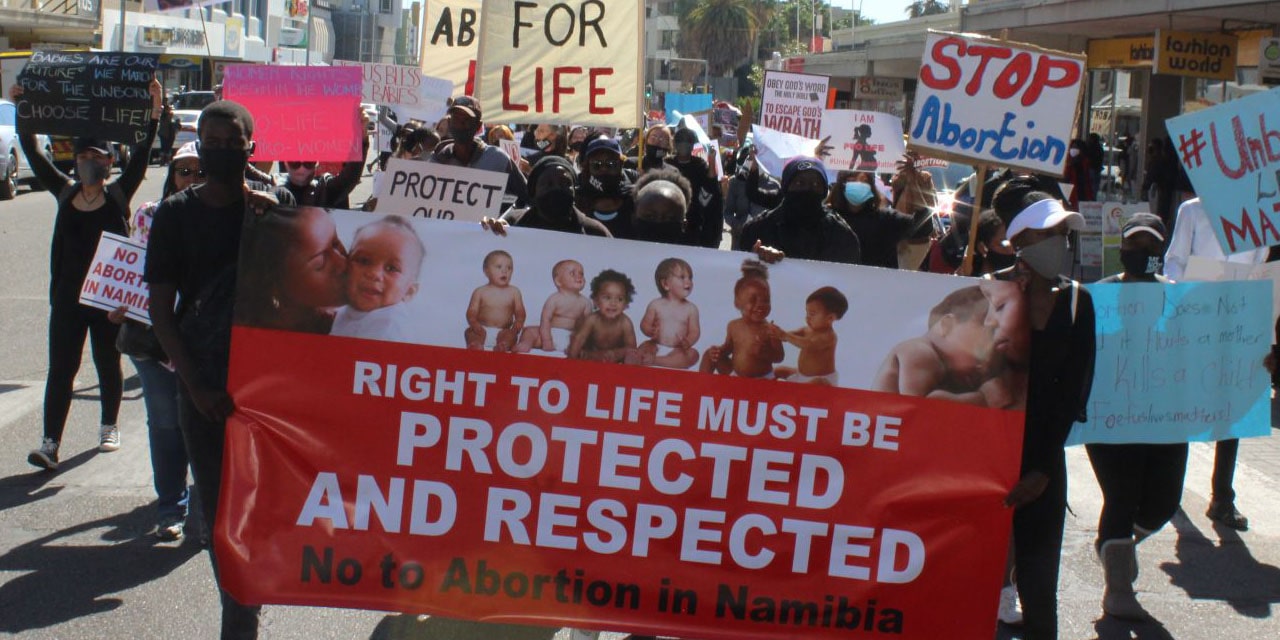Tujoromajo Kasuto
The pro-life movement in Namibia, as well as a coalition of churches, is adamant that no innocent born or unborn person should be killed.
Morasha Magazi, 21-year-old founder of Fetus Lives Matter, says they find the call for abortion appalling and is “window dressed” with names such as pro-choice, women’s rights, reproductive rights and justice while in reality it is a call for murder (intentional taking of a life of another living being”. Magazi adds that the choice they are being “demanded” to surrender to is the choice of “life and death”, asking how is it that Namibia as a nation has “reverted to telling a 16-year-old who barely understands the concept of death, to kill her own child?”
She further says any law that legalises abortion is a direct contradiction and violation of the Constitution. “For any person to disqualify an unborn child from the protection of the right of life, they must demonstrate that contrary to overwhelming scientific evidence, the unborn baby is not alive. Which goes against common sense for how something died can grow into something alive?”
Magazi maintains that the unborn baby is alive at every stage of development. Refuting another lingering argument that the baby is not separate from the mother thus it is the mother’s choice to decide. “Does science not proves that the DNA of the baby is different and the blood type may be different too?”
Fetus Lives Matter is an organisation of young Christian girls in Namibia advocating for the ethical rights of women and young girls’ right to say no to entertaining the idea of permitting the “evil” of abortion as a matter of principle.
Zelda van der Colff, Coordinator of the Pro-Life Namibia Movement, says the process of abortion is currently regulated in Namibia under the Abortion and Sterilisation Act of 1975, which defines the circumstances in which an abortion may be procured on a women or which person is incapable to consent to sterilization, may be sterilized and lastly provides for incidental matters.
Thus, she says there is no need for any change to the Act as the intention of the legislation is clear in that the Act gives the women who carries the fetus the legal justification to “intentionally kill” a live fetus with the assistance of an authorised medical practitioner, to defend or protect her life or prevent an abnormal birth of a live baby or otherwise terminate an illegal inception of a live fetus.
Van der Colff laments that it cannot be argued that the act was enacted or should be enacted as a form of contraceptive, as the intention is to provide legal justification to perform intentional “killing” since it is clear that the legislation considers the fetus to be alive irrespective of what stage the pregnancy may be.
Magazi says there are pertinent issues that require urgent solutions such as baby dumping, reduction of illegal abortions, support to pregnant women in difficult situations forcing them to consider “killing” their unborn bay. Sasha Louw says there is scientific, moral and rational conclusions one can draw to be pro-life but none matters unless “we can claim that the life has value and worth, and one human does not have the right to decide for another human born or unborn whether they have a right to live out their given value, purpose and meaning on this earth.”
She says the Coalition is not just talk and no action as it assist the lives of women, girls and families who have been through or contemplating an abortion. She adds that the church aims are working on and towards certain initiatives in effecting the pro-life cause. Namely, donation of essential supplies such as diapers, clothes, formula, bottles, etc. to expectant mothers, educating the public on abortion, post-abortive support, helping unemployed moms and dads find jobs, prenatal training, support new moms and providing medical assistance and guidance for fathers in becoming the “steadfast reliable, responsible leaders they were meant to be.”




